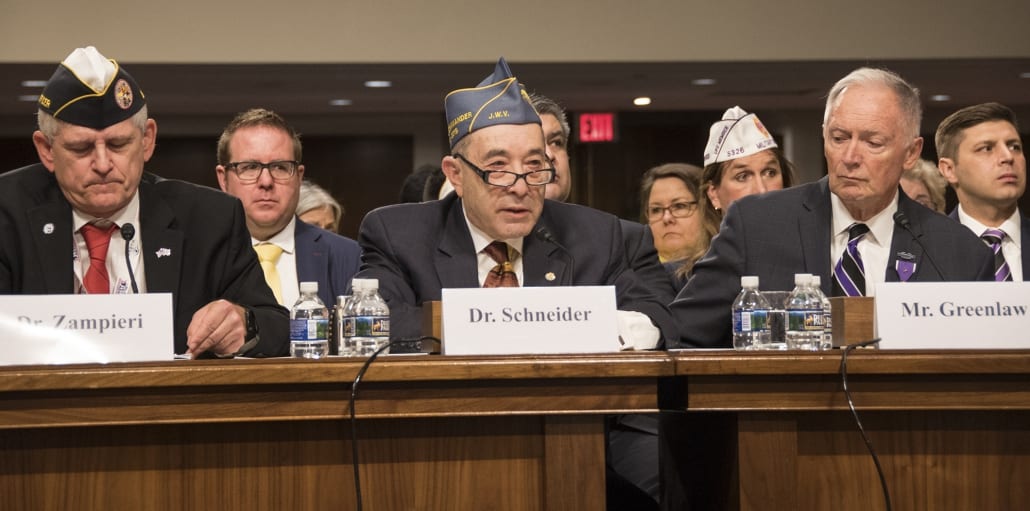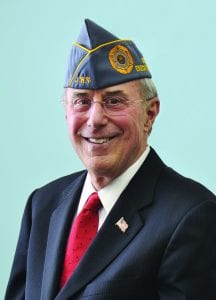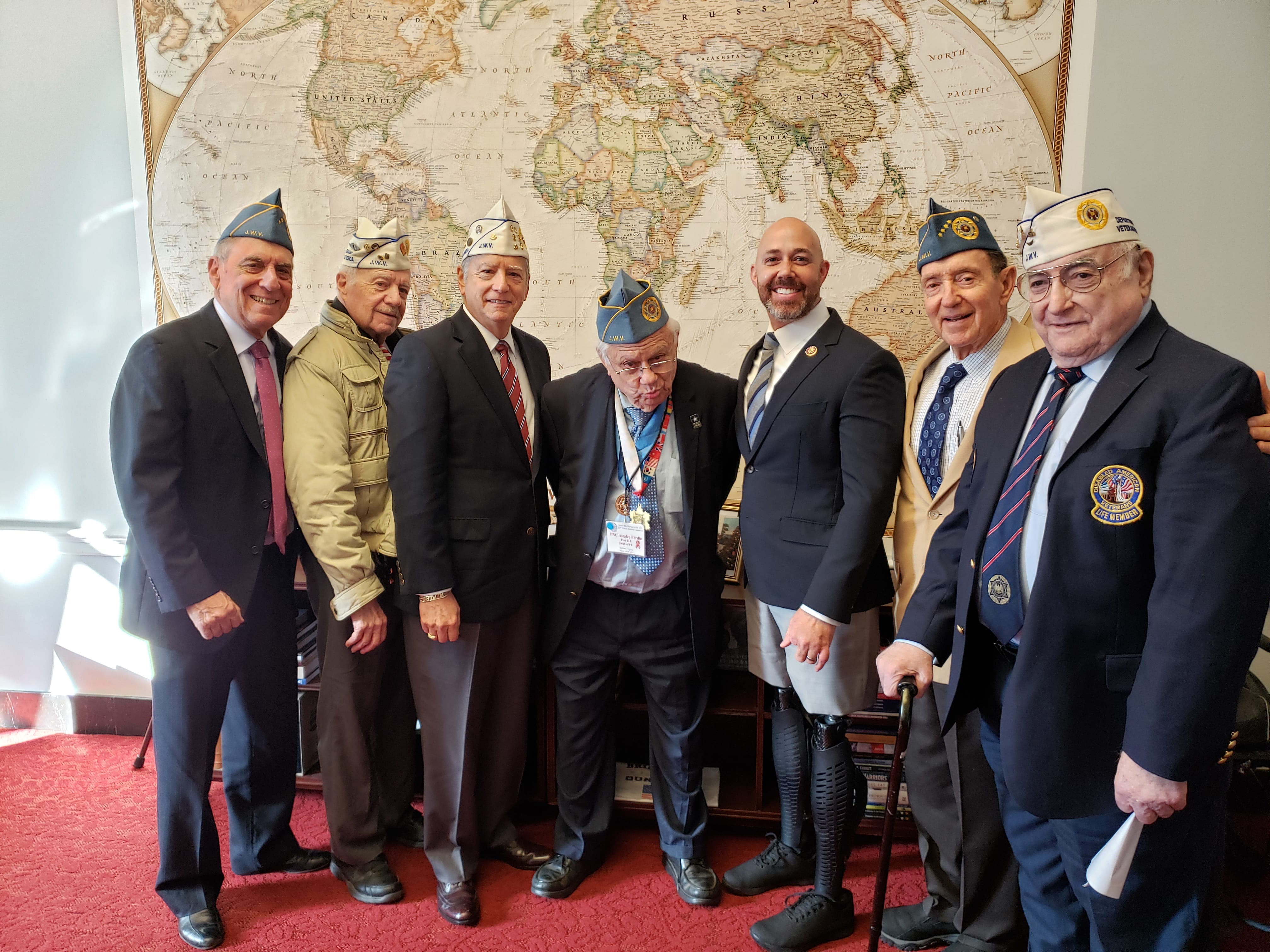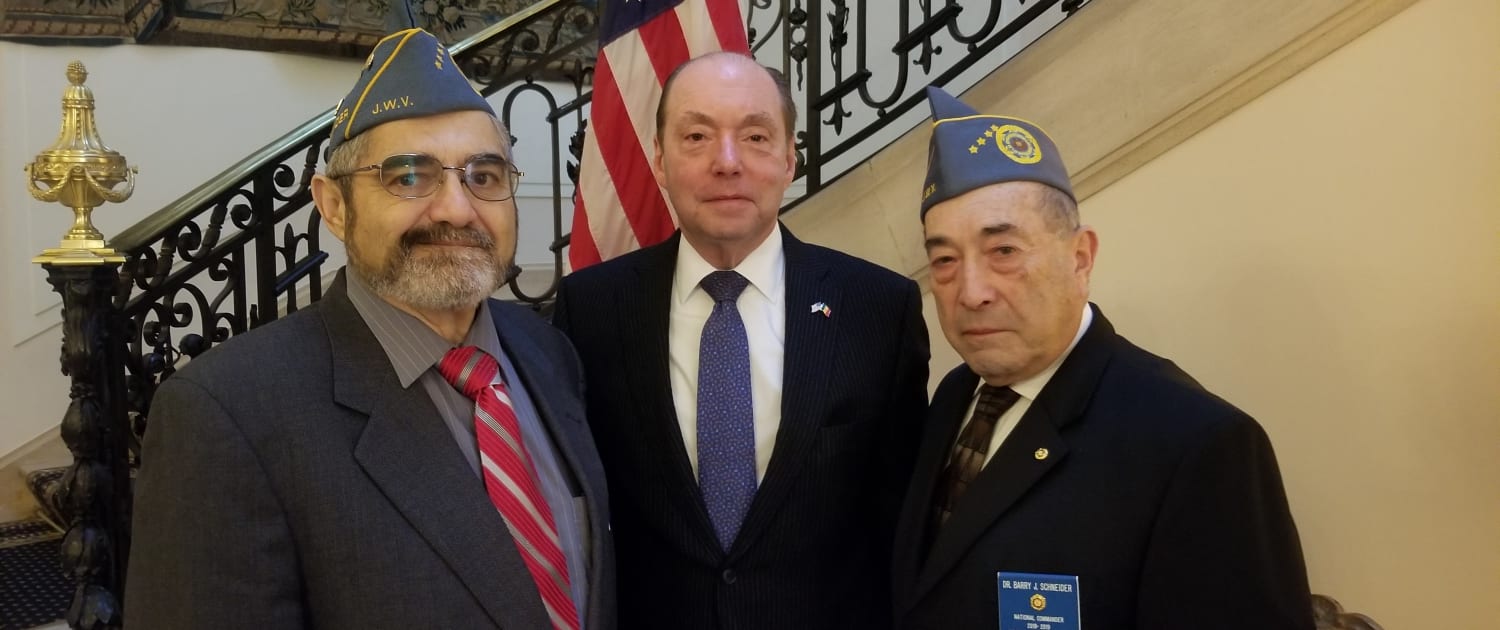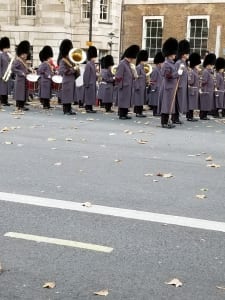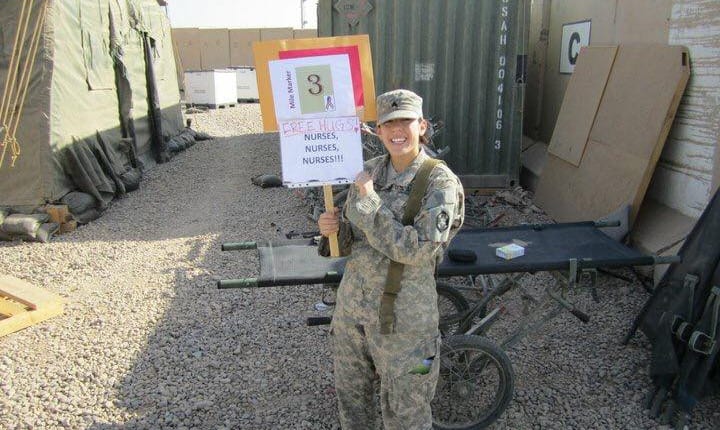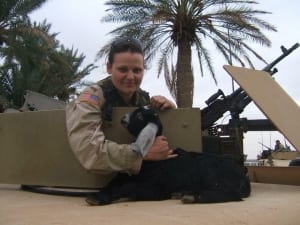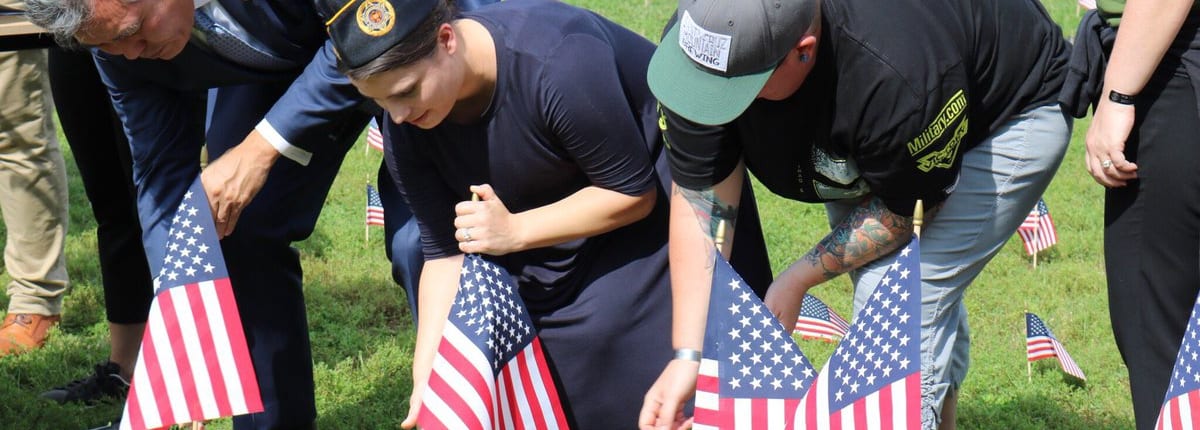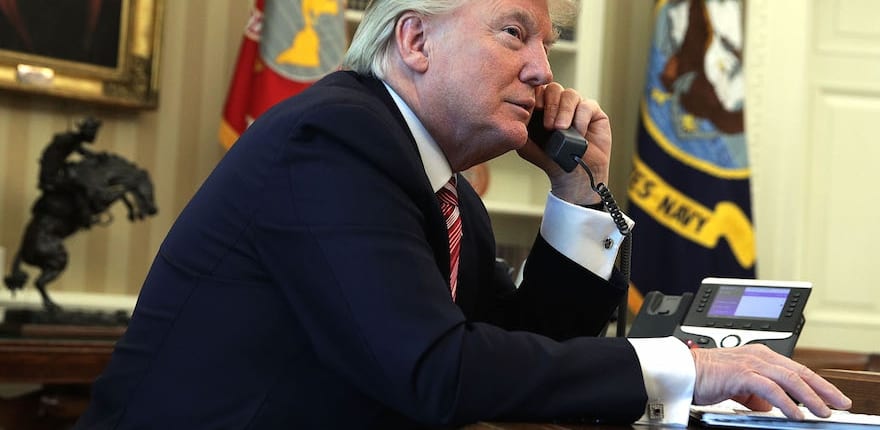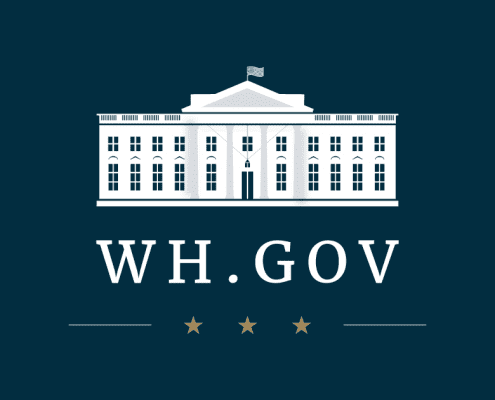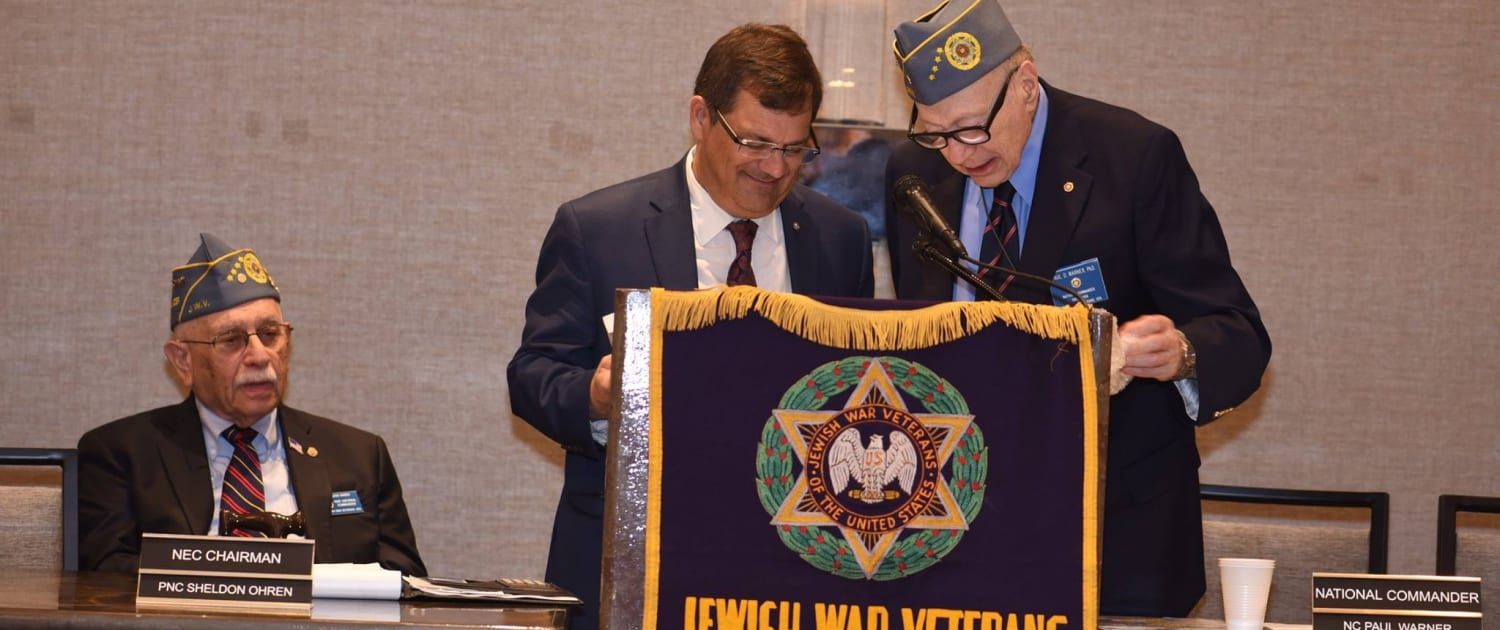By Herb Rosenbleeth
The National League of Families of American Prisoners and Missing in Southeast Asia will be turning 50 next year. The League’s sole mission, fully supported for decades by JWV, is “to obtain the release of all prisoners, the fullest possible accounting for the missing and repatriation of all recoverable remains of those who died serving our nation during the Vietnam War.”
JWV has been and is a supporter of the National League of Families in every way we can. Our national commander almost always speaks of the POW-MIA issue during our presentation to a joint session of the House and Senate Veterans Affairs Committees each year. JWV flies the POW-MIA flag at every meeting of our national convention and at every meeting of our National Executive Committee. I personally participate at the League’s annual national meeting each June. Our departments and posts keep those who are MIA in their minds.
The National League of Families was founded in the late 1960’s. The US government’s policy was to keep a low profile on the POW/MIA issue and urged families not to publicly discuss the issue. Realizing that this approach was not working, the first POW/MIA story was published in October 1968. Because of that publicity, the families began reaching out to each other and the group began to grow. Some POW/MIA family member groups were able to meet in Paris with the North Vietnamese representatives. Also, thousands of Americans sent telegraphic inquiries concerning the prisoners and the missing, marking the beginning of the issue becoming more widely known.
In May 1970, the League’s charter and by-laws were adopted in a meeting at Constitution Hall in Washington, DC. Since that time, a seven-member board of directors has provided guidance and management of the organization.
The League’s national office is in Falls Church, Virginia. It operates under the direction of the Chairman of the Board and is staffed by two full-time employees and two part-time archival document specialists. Ann Mills-Griffiths, MIA sister, is the Chairman of the Board and the principal spokesperson of the League. Ann has been the League’s mainstay since the late 1970’s. Another mainstay of the National League of Families is Richard Childress, who served in Vietnam with JWV’s National Judge Advocate, Harvey Weiner.
As of February, there were still 1,589 American missing and unaccounted for from the Vietnam War. I remember when the number was around 2,500, and I recall going to meetings where live sightings were reported. I also vividly recall when the POW/MIA flag, with the words, “You are not forgotten,” first appeared. The League’s POW/MIA flag is the only flag, other than “Old Glory,” to ever fly over the White House. On March 9, 1989, a POW/MIA flag that had previously flown over the White House was permanently installed in the U.S. Capitol Rotunda. On August 10, 1990, the 101st Congress passed U.S. Public Law 101-355, which recognized the League’s POW/MIA flag and designated it “as the symbol of our Nation’s concern and commitment to resolving as fully as possible the fates of Americans still missing and unaccounted for in Southeast Asia…” The Department of Veterans Affairs displays the POW/MIA flag 24/7. The National Vietnam Veterans, Korean War Veterans, and World War II Memorials also display the POW/MIA flag daily.
I still have a vivid recollection from my childhood of a POW/MIA case. My mother’s close friend, Mrs. Birnbaum, had a son who was a navigator on bombing missions over Germany. His name was Sanford Birnbaum. Sanford was last seen bailing out of his shot-up plane and was never seen or heard from again. After the war, Mr. and Mrs. Birnbaum traveled to civilian hospitals in Germany to see if they could find him. A missing, unaccounted for individual is a tragedy.
As long as one person remains unaccounted for, JWV will be a supporter of the League.
Volume 73. Number 2. 2019
